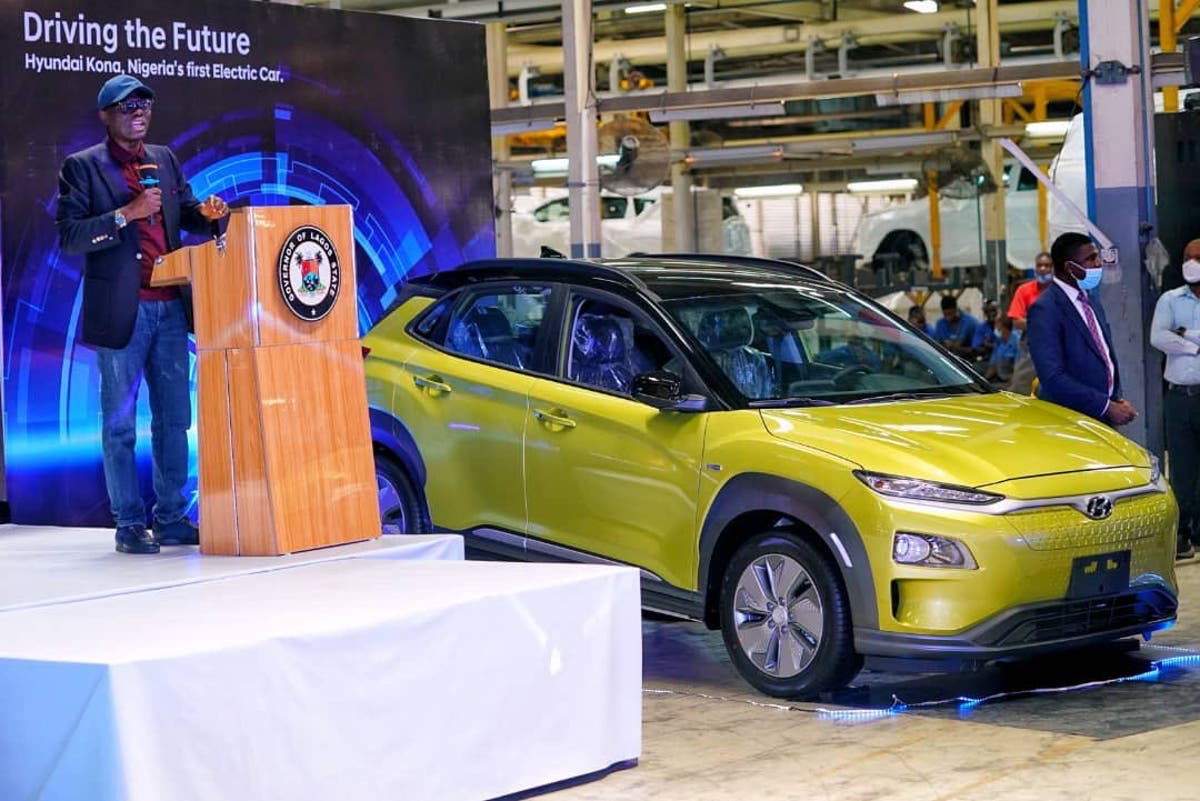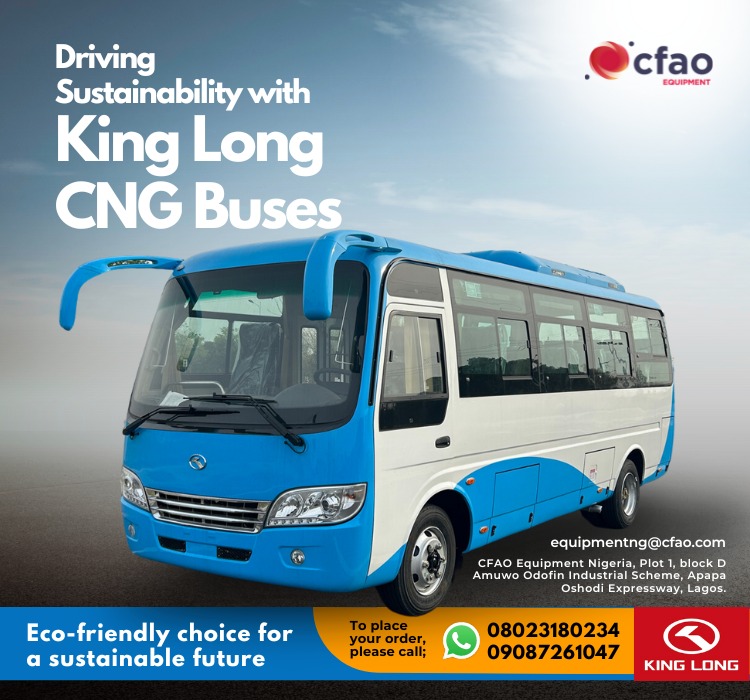The Lagos State Governor, Babajide Sanwo-Olu on Friday, November 13, 2020, unveiled the first Nigerian electric car- Hyundai Kona.
The vehicle is reported to be Nigeria’s first locally-assembled full electric car and was manufactured by the Stallion Group Automobile.
The Governor unveiled the car at the VON Automobiles Nigeria in Ojo, Lagos State where the car was manufactured.
While speaking during the unveiling of the product, Sanwo-Olu observed that VON has over 40 to 50 years of vehicle manufacturing history, when they were assembling various Volkswagen products.
The Governor commended Stallion Group for the noble initiative. He promised that Lagos State Government will make provisions for electricity charging points for the vehicle across the state, to make it easy for users to enjoy their Electric Vehicles (EV).
“We are not just launching Hyundai Kona, Nigeria’s first electric car assembled in Lagos; we are indeed empowering and creating youth employment.

“This is 21st Century technology that has been brought into our country. With hardcore manufacturing companies like Stallion Group Automobile, we can begin to see the need to de-emphasise mono-product, which is oil.”
The Governor also promised the completion of the Lagos-Badagry Expressway, which was started under the administration of former governor of the state, Babatunde Fasola, in order to facilitate business activities in the state.
READ ALSO: Bajaj Auto launches RE 250 Super Keke in Nigeria
Sanwo-Olu said, “Lagos-Badagry Expressway which has been expanded from 2 to 10 lanes will soon be complete, we are not rushing the road; we are building a first-class road construction project.’’
The Managing Director, VON Automobiles, Mr Rohtagi Manish, while explaining the essence of the launch, pointed out that Kona will change things positively in the Nigerian auto market.
According to Manish, the changes in global temperature and weather patterns are seen today are caused by human activity. Kona, he said, is one way to respond to the global weather challenges, so as to achieve a greener environment.
This will also help to drive the Federal Government’s efforts to shift focus from petrol-based automobile to vehicles with a cheaper source of energy
According to the News Agency of Nigeria, the vehicle, when fully charged for 9hours, 35mins, would travel a distance of 482Kilometres, which is the equivalent of Lagos to Warri, Delta State, before it would require charging again.













